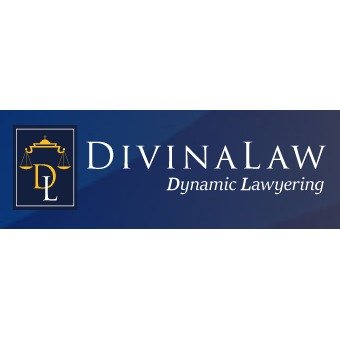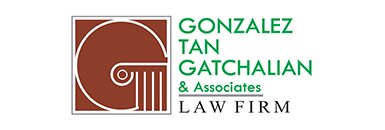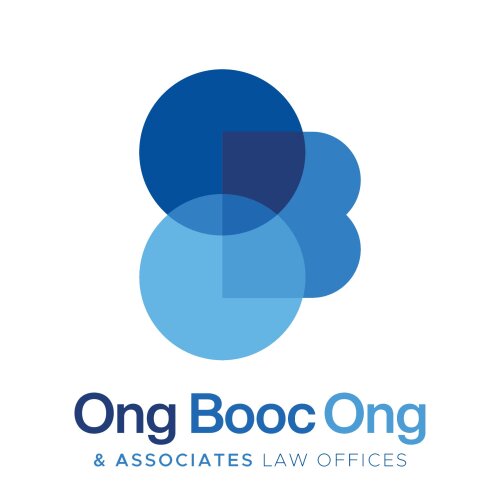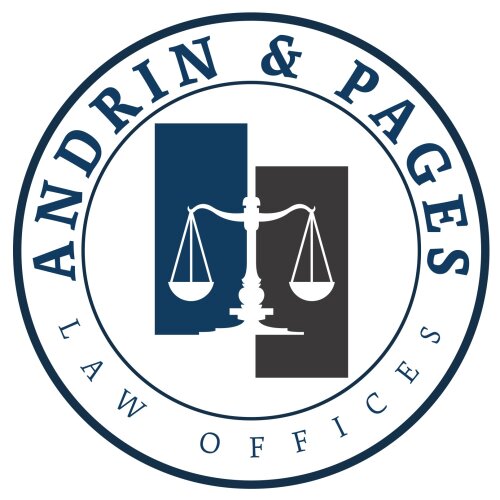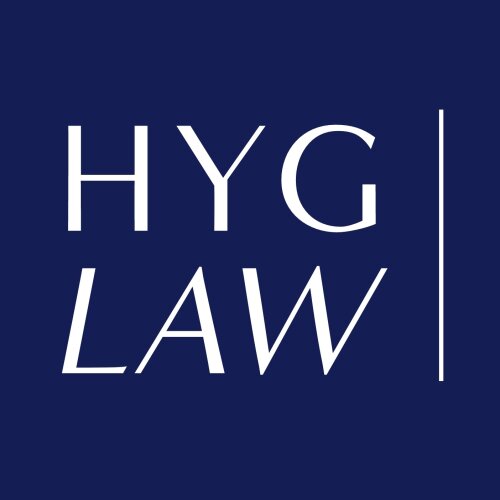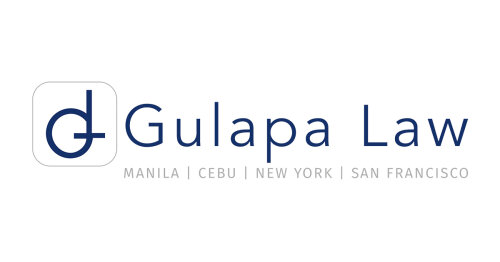Best Sanctions & Export Controls Lawyers in Cebu City
Share your needs with us, get contacted by law firms.
Free. Takes 2 min.
List of the best lawyers in Cebu City, Philippines
About Sanctions & Export Controls Law in Cebu City, Philippines
Sanctions and export controls refer to the legal rules and restrictions imposed by a country to regulate or prohibit trade with certain countries, individuals, or entities. In Cebu City, as part of the Philippines, these rules play a vital role in upholding national security, supporting international agreements, and preventing illegal activities such as terrorism financing or proliferation of weapons of mass destruction. Compliance in these areas ensures that local businesses and individuals engaging in international trade or financial transactions do not inadvertently violate local or international laws. The Philippine government, through various agencies, enforces these measures to protect both national interests and the international community.
Why You May Need a Lawyer
Navigating sanctions and export controls law can be complex, especially for businesses and individuals involved in international transactions. Here are some common situations in Cebu City where you might need legal help:
- Engaging in import or export activities with foreign partners
- Transactions with entities or individuals in countries subject to sanctions
- Using or transferring controlled technologies or products
- Receiving inquiries or investigations from Philippine or foreign authorities
- Unintentional violation of export control regulations
- Drafting compliance programs or training staff on risk awareness
- Addressing seizure or delay of goods at ports due to documentation or compliance issues
- Securing or renewing export licenses or permits
- Responding to alerts or requests from banks, customs, or other agencies
- Seeking advice on new laws or regulatory changes
In these scenarios, a lawyer experienced in sanctions and export controls can help you avoid legal penalties, ensure smooth operations, and maintain your reputation.
Local Laws Overview
The Philippines, including Cebu City, is bound by both local and international obligations regarding sanctions and export controls. Key aspects of the local legal framework include:
- Customs Modernization and Tariff Act (CMTA) - Governs the import and export of goods, including prohibited and restricted items.
- Anti-Terrorism Act of 2020 - Provides authority to freeze assets and restrict dealings with listed individuals or groups associated with terrorism.
- Strategic Trade Management Act (STMA) of 2018 - Establishes controls over the export, re-export, transit, and transfer of strategic goods, including military and dual-use items.
- Central Bank and Anti-Money Laundering Regulations - Monitor and restrict financial flows linked to sanctioned countries or persons.
- International Commitments - The Philippines abides by United Nations Security Council Resolutions, incorporating them into local law, particularly relating to North Korea and other sanctioned states.
These laws are implemented by government agencies such as the Bureau of Customs, Anti-Money Laundering Council, Department of Trade and Industry, and the Bureau of Export Trade Promotion.
Frequently Asked Questions
What is considered a sanctioned activity in the Philippines?
Sanctioned activities include engaging in prohibited transactions with listed individuals, organizations, or countries, dealing in certain arms or dual-use items, financing targeted groups, and violating imposed trade bans.
How do I know if I am dealing with a sanctioned entity?
Before any transaction, you should check lists maintained by the Philippine government and the United Nations. A lawyer can assist in conducting due diligence to ensure compliance.
What are strategic goods under Philippine law?
Strategic goods include items, technologies, software, and materials that can be used for military, nuclear, chemical, or dual-use purposes. These are controlled under the Strategic Trade Management Act.
Do I need an export license for all outbound shipments?
Not all shipments require a license, but if your goods are classified as strategic goods or subject to controls, a license may be mandatory. Consulting an expert or the Bureau of Customs is advisable.
What are the penalties for violating sanctions or export controls?
Penalties can include hefty fines, confiscation of goods, cancellation of business permits, and even criminal prosecution leading to imprisonment.
How can my business stay compliant?
Implement an internal compliance program, stay updated on current regulations, conduct regular audits, and consult a legal professional familiar with Philippine and international sanctions laws.
Are there any countries the Philippines does not allow trade with?
The Philippines restricts trade with countries or entities subject to United Nations Security Council sanctions and those listed under local laws for security and anti-terrorism reasons.
Can I export technology or software without restrictions?
Certain types of technology or software, especially those with potential military or dual-use applications, require authorization. Always verify with the Department of Trade and Industry or a legal expert.
What should I do if my goods are detained by customs?
Seek immediate advice from a lawyer experienced in export controls. Provide accurate documentation and respond promptly to any inquiries from authorities to avoid further issues.
Who enforces sanctions and export controls in the Philippines?
Multiple agencies are involved, including the Bureau of Customs, Anti-Money Laundering Council, Strategic Trade Management Office, and the National Security Council, depending on the nature of the issue.
Additional Resources
Here are some organizations and governmental bodies that can provide information and assistance related to sanctions and export controls in Cebu City and the Philippines:
- Bureau of Customs (BOC)
- Strategic Trade Management Office (STMO) under the Department of Trade and Industry
- Anti-Money Laundering Council (AMLC)
- National Bureau of Investigation (NBI) for misconduct and violations
- Philippine Exporters Confederation (PHILEXPORT) for business guidance
- United Nations Sanctions List
- Philippine Chamber of Commerce and Industry
- Local law firms specializing in international trade law
For complex matters, consider reaching out to these organizations or a specialized attorney to ensure that your transactions adhere to all applicable laws.
Next Steps
If you need assistance regarding sanctions or export controls law in Cebu City, consider the following steps:
- Document your situation clearly, including all relevant transactions or communications.
- Review any regulations or notices issued by pertinent government agencies related to your concern.
- Seek initial information from the government bodies or professional organizations listed above.
- Contact a legal expert specializing in sanctions and export controls for personalized advice.
- If you are facing an investigation or legal action, consult a lawyer immediately to protect your rights and interests.
- Regularly update your knowledge on new rules and regulatory changes to maintain compliance moving forward.
Whether you are a business, an exporter, or an individual involved in cross-border transactions, taking these steps will help you navigate the complexities of sanctions and export controls law in Cebu City and the Philippines with confidence.
Lawzana helps you find the best lawyers and law firms in Cebu City through a curated and pre-screened list of qualified legal professionals. Our platform offers rankings and detailed profiles of attorneys and law firms, allowing you to compare based on practice areas, including Sanctions & Export Controls, experience, and client feedback.
Each profile includes a description of the firm's areas of practice, client reviews, team members and partners, year of establishment, spoken languages, office locations, contact information, social media presence, and any published articles or resources. Most firms on our platform speak English and are experienced in both local and international legal matters.
Get a quote from top-rated law firms in Cebu City, Philippines — quickly, securely, and without unnecessary hassle.
Disclaimer:
The information provided on this page is for general informational purposes only and does not constitute legal advice. While we strive to ensure the accuracy and relevance of the content, legal information may change over time, and interpretations of the law can vary. You should always consult with a qualified legal professional for advice specific to your situation.
We disclaim all liability for actions taken or not taken based on the content of this page. If you believe any information is incorrect or outdated, please contact us, and we will review and update it where appropriate.







